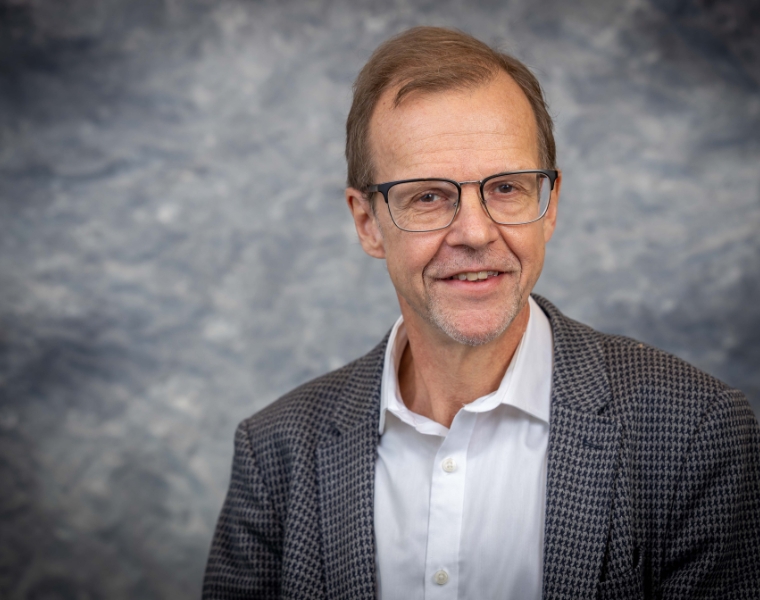Erkki Somersalo has spent four decades working to solve a mathematical uncertainty.
His quest: to perfect the flawed complex computer modeling behind real-world applications, from biomedical imaging to predicting climate change.
Starting this fall, the Case Western Reserve University professor of mathematics will be able to focus solely on the subject for an entire calendar year. The John Simon Guggenheim Memorial Foundation has named him a 2023 Guggenheim Fellow, one of the most prestigious honors academics and creatives can receive.
“Professor Erkki Somersalo’s work advances the connection between mathematics and biomedical research that allows us to make use of imaging data for advancing human health and other needs,” said College of Arts and Sciences Dean Joy K. Ward. “This award is so well-deserved. I am honored to have Erkki as part of the college, where his work contributes to our excellence in research.”
Inverse problems and modeling
Somersalo has focused much of his career on working on inverse problems—the mathematical equivalent of reverse engineering: observing an outcome and then creating calculations to explain it.
The obstacle, he said, is that even the best computer modeling is haunted by an underlying mathematical discrepancy in the machine. There’s an inherent deviation among the three ways to measure: theoretical, computational and observed value.
It can result in computer-modeling errors, making an X-ray image useless or a climate prediction inaccurate, for example.
“What I’m focused on is trying to better reconcile those calculations and the inherent uncertainty,” said Somersalo, who joined Case Western Reserve’s faculty in 2008. “The theoretical and computational are, of course, not really the same as the reality of nature—the third thing. So what we are always trying to know is how these three things are related, and that’s where the ‘magic of mathematics’ comes in.”
Somersalo has contributed to applications in biomedical research as well as computational electromagnetism, remote sensing, and particle accelerator design.
In recent years, he has extended that approach towards the modeling of complex biological systems such as metabolism and interaction of cells with their biochemical environment.
CWRU and Guggenheim
Somersalo is one of 171 Fellows selected this year from a pool of nearly 2,500 applicants. He is also the only 2023 recipient from applied mathematics, according to the foundation.
Since 1925, the foundation has granted nearly $400 million in fellowships to over 18,000 individuals, including more than 125 Nobel laureates, members of all the national academies, winners of the Pulitzer Prize, National Book Award, and other internationally recognized honors.
“I feel so honored to have been selected for this fellowship, there’s no other word that fits,” Somersalo said. “It will provide an opportunity to look at these problems in a concentrated, uninterrupted way.”
His award is Case Western Reserve’s third in the past five years, all to faculty from the College of Arts and Sciences.
Elina Gertsman, a professor of art history and the Archbishop Paul J. Hallinan Professor in Catholic Studies II, received a fellowship in 2020, and Michael Clune, the Samuel B. and Virginia C. Knight Professor of Humanities in English, in 2019.
For more information, contact Mike Scott at mike.scott@case.edu.
This article was originally published April 14, 2023.

